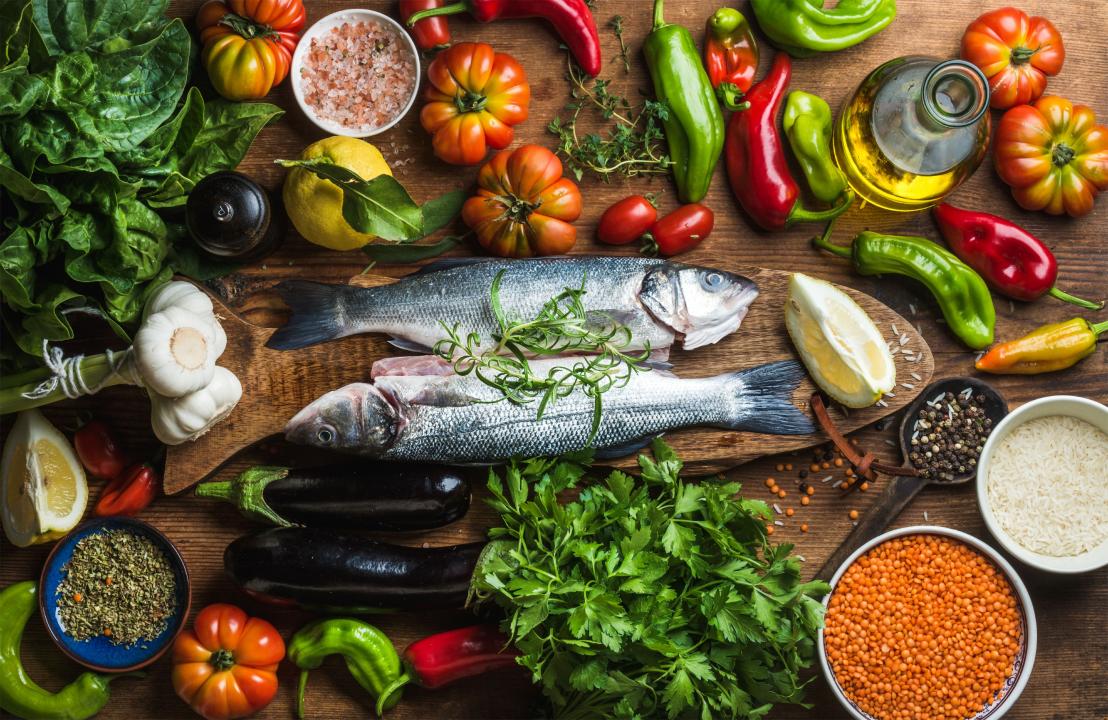In 2021, more than one fifth of the EU population was aged 65 and over. Current demographic trends suggest there will be 130 million Europeans over the age of 65 by 2050. By 2040, according to the World Health Organisation, the global population aged 65 and over will surpass 1.3 billion.
Longer life expectancy brings its own challenges, such as increasing physical and mental impairments. Age-related diseases like cancer, mental and physical decline are not uncommon. Overall, the rapidly ageing population places costly demands on struggling health systems.
‘Changes in nutrition and lifestyle are by far the most cost-efficient ways to promote healthy ageing at the population level,’ said Dr Hermann Stuppner, head of department in the faculty of Chemistry and Pharmacy at the University of Innsbruck in Austria.
Dr Stuppner developed the project MediHealth, which took inspiration from the Mediterranean diet amongst other eating habits across the world, to understand which plants help us to better age.
The Mediterranean area, especially Crete, has long been associated with low rates of coronary heart disease (CHD), breast and colon cancer. Some scientists attribute it to the high olive oil consumption, which serves as the principal source of dietary fat.
The MediHealth project selected plants originating from Greece, Vietnam, South Africa, Tunisia and Chile. Eventually, only the small wild green Cichorium spinosum known as spiny chicory was chosen as an ingredient in a new competitive nutraceutical product.
A nutraceutical is a food product that provides medical or health benefits, including the prevention and treatment of disease.
Dr Stuppner is pleased that ‘the beneficial effects of healthy eating are greatly recognised and globally acknowledged.’ But, he points out, the majority of food plants have not even been investigated and any benefits are unknown as yet.
The MediHealth project operated with a unique structure that gathered together 13 different groups of experts from both the academic world and industry. They created and analysed metabolites that mimic the processing of plant extracts by the human digestive system.
The scientists wanted to know if these could arrest age-related decline. This would produce a strong scientific base for the development of new products to fight the effects of ageing.
Dr Stuppner explains that this strategy of sharing across multidisciplinary teams ‘helps to increase the scientific interest in natural products research’. Despite the deep collaborations, some questions remained unanswered. Which is why MediHealth’s partners kept working together after the end of the project in 2019.
It is a prospect to be welcomed. ‘There are undoubtedly some new results to be expected,’ said Dr Stuppner, ‘regarding new natural products, their pharmacological activity, their mechanisms of action and their impact on healthy ageing.’
Old but InDEPENDEnt
People who are older may need, on average, more protein than younger people. Inadequate protein intake by older adults is a cause for concern. The InDEPENDEnt study took a look at the impact of protein-based diets on disability in ageing Europeans and Americans.
‘How a person wishes to age varies from person to person,’ said Nuno Mendonça from the Universidade Nova de Lisboa in Portugal, who took part in this research. ‘However, and in general, older adults care more about being able to stay independent and go about their daily activities than simply extending life-expectancy without quality of life.’
The emergence of disability can be gradual, or it can be sudden after an important stressor event, explained Mendonça.
So called ‘good nutrition’, which provides a person with all necessary nutrients according to their sex, age and health status, goes hand-in-hand with physical activity when it comes to resisting age-related diseases. Together they tend to prevent the decline of muscle that may lead up to disability.
The project analysed data from four large studies in Europe and North America. InDEPENDEnt’s findings add to the evidence that a sustained and adequate intake of protein over time can slow down the ageing process.
The result was not unexpected. ‘Good nutrition plays a very important role in prevention,’ said Mendonça. ‘Adequate protein intake seemed to be effective at preventing incident disability.’
There is still a great deal left to understand, such as, the protein requirements under specific conditions in older adults. There are questions about what, if any, differences exist between the sources of protein and the role of amino acids, which are the building blocks of protein. There is still some controversy about increasing protein dietary guidelines for healthy older adults despite broad agreement in the scientific community.
These studies, together with others, may inform the development of new dietary protein guidelines for older adults and public health interventions. To follow up, the team are planning a new project called IPHUNCTION in order to study the interplay between protein and physical activity.
Age is inevitable but food and nutrition may hold the key to making sure the ageing process is healthy and positive.

